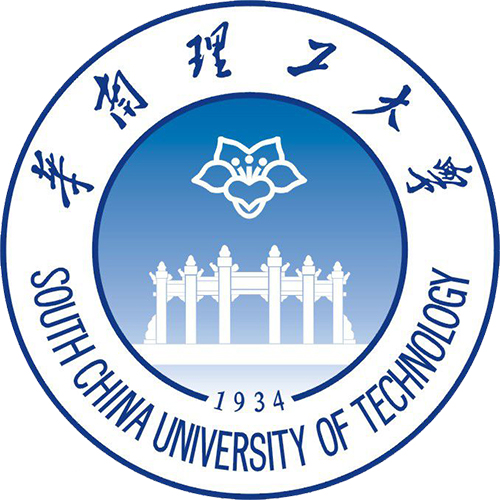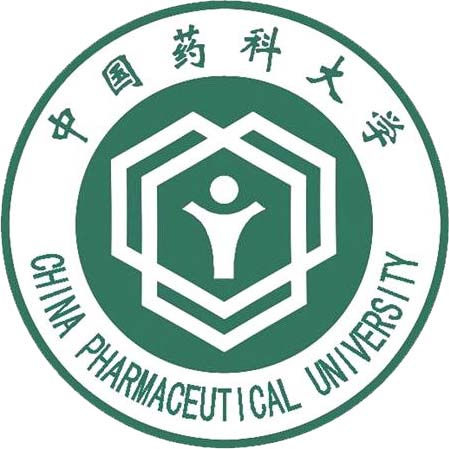
 Introduction
IntroductionThe school takes economics, management and law as its main disciplines, and promotes the coordinated development of multiple disciplines such as literature, science, engineering, art and education. It vigorously develops new liberal arts and interdisciplinary studies. There are a total of 27 teaching and research units and 67 undergraduate programs, including 18 national first-class undergraduate program construction points and 16 provincial first-class undergraduate program construction points. There are 2 first-level discipline points authorized for doctoral degrees, 1 second-level discipline point authorized for doctoral degrees, 11 first-level discipline points authorized for master's degrees, 1 second-level discipline point authorized for master's degrees, and 23 master's professional degree authorization points. Applied Economics is a first-level discipline authorized to confer doctoral degrees, a provincial advantageous key discipline, and a key construction discipline under the "catch-up and strengthening" initiative. National Security Studies is a first-level discipline authorized to confer doctoral degrees and a key discipline in Guangzhou. Business Administration and Law, two first-level disciplines, are provincial advantageous key disciplines and key construction disciplines under the "catch-up and strengthening" initiative. Theoretical Economics is a provincial characteristic key discipline. Digital economics is a provincial key construction discipline that aims to be strengthened and supplemented. The school currently has about 30,000 full-time undergraduate and postgraduate students.
 About the Program
About the ProgramBasic Theory Courses:
Fundamentals of Economics
Microeconomics: Market supply and demand analysis, consumer behavior theory (such as diminishing marginal utility), enterprise cost structure (opportunity cost, economies of scale).
Macroeconomics: The Impact of international trade on GDP, Exchange rates and Balance of Payments (Mundell-Fleming model), Global Economic cycles (such as the transmission mechanism of the subprime mortgage crisis on international trade).
Principles of Management
The design of organizational structure for multinational enterprises (such as the application of matrix management in Unilever), cross-cultural team management (Hofstede's theory of cultural dimensions), and strategic management (Porter's Five Forces Model for analyzing international competition).
Introduction to International Business
The development process of globalization (from colonial trade to digital trade), the evolution of international trade theories (absolute advantage theory → factor endowment theory → national competitive advantage theory), WTO rules and the multilateral trading system.
 About Guangdong University of Finance and Economics
About Guangdong University of Finance and EconomicsGuangdong University of Finance and Economics was founded in 1983, originally named Guangdong College of Finance and Economics. It initially offered undergraduate education. In 1985, it was renamed Guangdong University of Business Studies. In 2003, it was granted the right to confer master's degrees. In 2013, it was renamed Guangdong University of Finance and Economics. In 2021, it was approved as a doctoral degree awarding institution.
Since its establishment, the school has adhered to the motto of "Cultivating Virtue, Encouraging Learning, Being Diligent in Practice, and Innovating", and has consistently upheld the educational philosophy of "Mastering Rites, Music, and Literature, and Excelling in Professional Skills" as well as the governance strategy of "Rule of Law, Science, Democracy, and Transparency". It has highlighted the educational characteristics of "Integration of Business and Law, Practical Entrepreneurship, and Multi-party Collaboration". It has cultivated a large number of applied, compound and innovative senior specialized talents with good ideological and moral qualities, scientific spirit, humanistic qualities, professional knowledge and international vision for the country. After 41 years of development, the school has been built into a finance and economics institution with distinct disciplinary characteristics, strong teaching staff, remarkable educational benefits, and high social influence and reputation. It is the chair unit of the "New Liberal Arts" Construction Guidance Committee of Guangdong Province's Undergraduate Colleges and Universities and a demonstration school for college students' innovation and entrepreneurship education in Guangdong Province. At present, the school is striding forward towards the goal of building a first-class finance and economics university in the Greater Bay Area.
 Accommodation
Accommodation Fees
Fees Admissions Process
Admissions Process  Entry Requirements
Entry Requirements1. Non-chinese citizens, over 18 years old, in principle no more than 30 years old, holding a valid foreign passport with a validity period after December 31, 2025.
2. Be in good physical and mental health and meet the physical examination standards for applying for a study visa or residence permit to China.
3. Be friendly to China, diligent and eager to learn, have excellent academic performance, good conduct, abide by laws and regulations, have no record of violating school rules and regulations, no public security penalties, and no criminal records.
4. High school graduation or above.
5. Language proficiency certificate (valid for 2 years, valid until September 2025)
Ielts 5.5 or above; Toefl IBT score of 70 or above; Duolingo score of 100 or above, or equivalent English proficiency certificate.
(2) To be exempted from submitting an English proficiency certificate, one of the following conditions must be met:
1) Students from English-speaking countries;
2) If the highest academic degree is taught in English, proof of English teaching must be submitted.
6. To apply for majors such as International Economics and Trade and Digital Economics, one must have taken mathematics courses in the previous educational stage with good grades and no failing records.
 Application Materials
Application Materials1. International Student Admission Application Form (see Attachment 1, please submit a word document).
2. One copy of the applicant's valid passport. The validity period of the passport should be later than December 31, 2025. If the requirements are not met, please apply for a new passport in a timely manner. Applicants who are already in China at the time of application need to submit the current valid visa page or residence permit page and the entry stamp page.
3. One copy each of the high school transcript and high school graduation certificate confirmed by the graduating school (if not in English or Chinese, a notarized English or Chinese translation must also be provided;) Recent high school graduates can first provide the original of the expected high school graduation certificate issued by their school.
4. Two recommendation letters: one from the principal of the graduating high school and one from a high school teacher.
5. Personal resume (see Attachment 2, fill in according to the template requirements).
6. Proof of economic status. An economic guarantee certificate (template attached as Appendix 3) and a deposit certificate need to be submitted. The deposit certificate must be issued by the bank and the amount should be no less than 40,000 RMB. If the deposit certificate is not issued by the applicant himself/herself but by the economic guarantor, the family relationship proof with the economic guarantor, such as the birth certificate, household register, notarized documents, etc., must be submitted simultaneously.
7. Four ID photos (frontal, bareheaded, makeup-free, white background color one-inch ID photos, in jpg or jpeg format).
8. Study and Research Plan in Guangdong: The content includes self-introduction, hobbies, study experience, study goals, application reasons and career plans after graduation, etc.
9. English Proficiency Certificate (valid for 2 years, until September 2025) : One of the following requirements must be met: IELTS 5.5 or above, or TOEFL IBT 70 or above, or Duolingo 100 or above, or an equivalent English proficiency certificate.
10. Physical Examination Report (Attachment 4) : The examination results must be stamped with the official seal of the hospital and be valid for six months.
11. Certificate of no Criminal Record: Applicants must submit a valid certificate of no criminal record issued by the public security authority of their place of nationality, which is usually a document issued within six months prior to the date of application submission. When applying, those who have resided in China for more than six months are also required to submit a certificate of no criminal record issued by the public security organ within China.
12. Application Form for Guangdong Provincial Government Scholarship for International Students in Guangdong (Annex 5) (If applying)
Applicants who have achieved a good grade or above in all high school courses will be eligible to apply for scholarships after being officially admitted.
(2) When filling out the form, to avoid unrecognizable handwritten fonts or incorrect information, please use a computer to input and fill in accurately.
(3) Please do not modify the content and format of the table. Just submit a Word document.
13. Chinese Proficiency Test (HSK) certificate and score report (if any).
14. Major academic papers, books and works (if any) that have been published.
15. Award certificates, awards and other materials that can prove one's comprehensive ability (if any).
 Reviews
Reviews Scholarship
ScholarshipIn 2025, 20,000 yuan per person will be provided for new students who receive full-time undergraduate education and have excellent comprehensive qualities. (For those who have already received the Guangdong Provincial Government Scholarship for International Students in Guangdong, a subsidy of 10,000 yuan per person will be given.) This grant cannot be used to offset tuition fees and will be distributed monthly after new students enroll.

South China University of Technology
Tuition
Start Date

China Pharmaceutical University
Tuition
Start Date